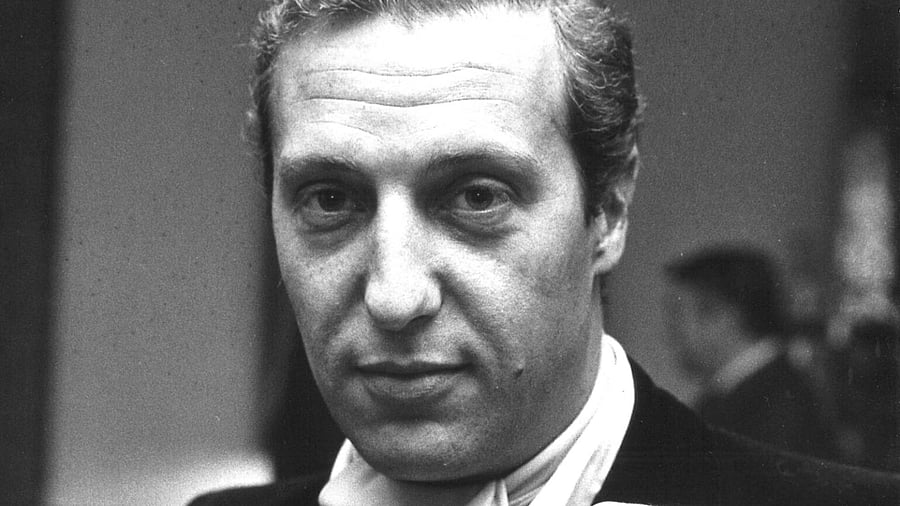
As a schoolboy in the early 90s, I knew two kinds of people — those who read Frederick Forsyth and those who did not. The best-selling author, who passed away on June 9, had eight thrillers to his name at that time, and these had a cult following among readers of “airport novels”, a rather pejorative description that had come to be used those days for fast-paced, easy-to-read fiction. This category of novels, which emerged during the 70s along with the global boom in commercial air travel, was typically sold at airports for those seeking entertainment during long flights or layovers.
Many sub-genres of “airport novels” were immensely popular — Robert Ludlum’s action and spy thrillers, Michael Crichton’s techno-thrillers, and Sidney Sheldon’s sweeping women-centric suspense dramas, to name just a few. My friends and I devoured these indiscriminately, often in just two or three sittings, but Forsyth’s geopolitical nail-biters were something else! We immersed ourselves in their pages, revisiting entire chapters and savouring every nugget of information. For us, Forsyth novels were essential reads, akin to some of the classics, because we believed there was serious education to be had from them.
Looking back, this unique appeal of Forsyth is easy to understand. For somebody who self-admittedly took up novel writing on a whim when broke and out of work, Forsyth proved himself a masterful storyteller from the outset. His 1971 debut, The Day of the Jackal — which chronicles a fictional assassination attempt on French President Charles de Gaulle in 1963 — has been an iconic success. As a testimony to its enduring appeal, the novel was adapted into a TV drama series starring Eddie Redmayne in 2024, more than 50 years after it was first turned into a movie! Jackal set the tone and, remarkably, Forsyth could sustain the intensity in his entire early oeuvre — The Odessa File (1972), The Dogs of War (1974), The Devil’s Alternative (1979), The Fourth Protocol (1984), and The Negotiator (1989).
Forsyth wrote in the characteristic style of all “airport novelists” — taut and gripping plot-driven stories with cliffhangers or twists. But the most alluring aspect of his writing was actually a genre-defying trait. Unlike the other thriller writers we read, Forsyth often took long detours in between intriguing plot points to provide executive summary-like descriptions. The Fourth Protocol has a sizeable portion dedicated to explaining the components, assembly process, and mechanics of a nuclear bomb. The Devil’s Alternative vividly depicts the KGB headquarters in Moscow, including the building’s external architecture and the interrogation and operational areas inside. The Negotiator has an accurate overview of the role of the global oil industry in geopolitics.
We didn’t know it then, but this was Forsyth tapping his early-career experiences at the BBC and Reuters to combine narrative skills with journalistic rigour in research. It made his stories highly believable. However, to a more casual reader, such details could be excessive or distracting. Not us, though! We instinctively felt that the surest way to polish our writing skills would be to emulate Forsyth’s style of describing complex systems or settings, however mundane they might seem, with brevity and precision.
Also, to a bunch of curious boys in the pre-Internet era, the hyper-realistic plot points as well as technical and procedural details in Forsyth’s novels served as an informal primer in world affairs and geopolitics. In 2015, Forsyth revealed that he had done unpaid work for Britain’s external intelligence agency, MI6, during his journalism days, and that in return, portions of his manuscripts were occasionally vetted by the agency. It was oddly reassuring. Everything we had absorbed from his novels — nuclear doctrine, Cold War diplomacy, the structure of intelligence agencies — couldn’t have been too far removed from reality.
Forsyth wrote more than 15 novels. But sadly, the later works didn’t quite have that effect. The novels became progressively slimmer, without the detailing that was once Forsyth’s trademark style. Perhaps it was the shrinking attention span of his readers. Or perhaps it was the shrinking database of information drawn from first-hand experience in journalism and espionage. Or perhaps it was both.
The author’s last novel, Revenge of Odessa, a follow-up to The Odessa File, is due this August. The fan in me is hoping that, like his distinctive plot twists in the end, Forsyth has imbued this one with all his signature elements for a memorable last hurrah.